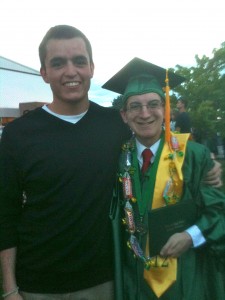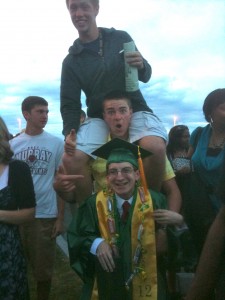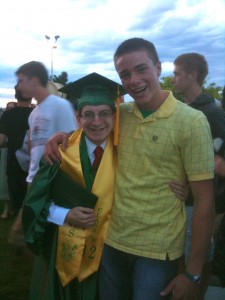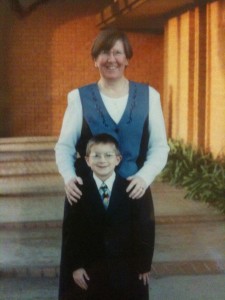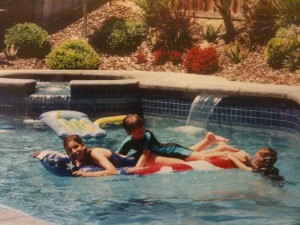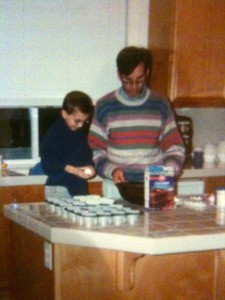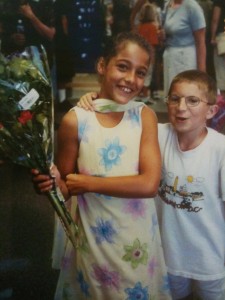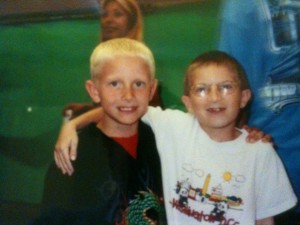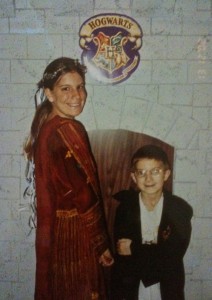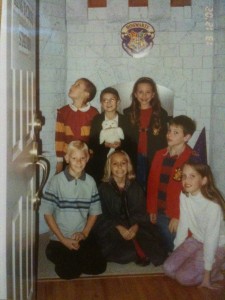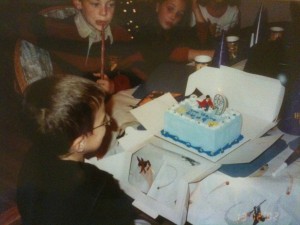Present word count of WIP: 53,497
I know. I didn’t post yesterday as promised. I’m afraid that the closer I get to the LDStorymakers Conference next week, the harder it’s getting to keep up with everything I need to do daily. Still, I’ll try to finish this out (even if it runs into May a bit).
Also, I said my next posting would be about changes between his First and Second Grade years. But then I realized I ought to include two lists I provided (prepared in advance) at his IEP at the end of his First Grade year (in preparation for Second Grade). Parents of children on the autism spectrum need to go into these meetings as fully informed and equipped as possible. I believe I came across the first, a suggested checklist outlining suggested modifications, adaptations, and support systems that might be useful for a child with Asperger’s, on the Online Asperger’s Syndrome Information and Support (O.A.S.I.S.) center website (which has since changed a bit since they combined with another support group). But I don’t recall for certain. Anyway, I went ahead and adjusted it a bit to more closely fit what I thought Jason needed.
Here it is:
Specially Designed Instructions for Educators:
IEP Modification/Adaptations/Support Checklist
For: Jason Mills
Date: May 10, 2001
Grade: First & Second
Communicating to the Student:
____Be concrete and specific
____Avoid using vague terms like later, maybe, “why did you do that?”
____Slow down the pace
____If necessary for understanding, break tasks down into smaller steps
____Use gestures, modeling, and demonstrations with verbalization
____Provide accurate, prior information about change
____Provide accurate, prior information about expectations
____Specifically engage attention visually, verbally, or physically
____Avoid idioms, double meanings, and sarcasm
Encouraging Communication with the Student:
____Pause, listen, and wait
____Watch and listen to attempts to respond
____Respond positively to attempts
____Model correct format without correction
____Encourage input and choice when possible
Social Supports:
____Protect the child from bullying and teasing
____Praise classmates when they treat him with compassion
____Create cooperative learning situations where he can share his proficiencies
____Establish a “buddy system” in each class he attends
____Build in time to watch, encourage watching and physical proximity
____Practice on specific skills through natural activities with one peer
____Practice on specific skills through natural activities with a few peers
____Structured activities with set interaction patterns and roles
____Focus on social process rather than end product
____Specific teaching, rehearsal, practicing, and modeling in natural settings of the
following skills:
____turn-taking ____complimenting ____negotiating ____responding
____inviting ____waiting ____greeting ____repairing breakdowns
____joining others ____accepting answers of others ____joking and teasing
____accepting success of others ____taking the lead
____following ideas of others
____Shared interests using inteerests and strengths
____Teacher or school personnel advocate who will problem solve and facilitate
____Individualize social stories giving specific situations emphasizing descriptions and
perspectives
____Concentrate on changing unacceptable behaviors and ignore those that are simply
“odd”
Environment and Routine:
____Provide a predictable and safe environment
____Minimize transitions
____Offer consistent daily routine
____Avoid surprises, prepare him thoroughly and in advance for special activities,
altered schedules, or other changes, regardless of how minimal
____Talk him through stressful situations or remove him from the situation
____Provide personal space in resource or other room for relaxation
____Reduce distractions and sensory overloads, including:
____noise ____vision ____smell
____Allow modifications as needed to deal with sensitivity to touch issues, such as
immersing hand in gooey liquid
Presentation of Material:
____Presented visually through:
____written ____demonstration ____pictured and written ____pictured
____objects ____calendars/maps/charts/diagrams ____computers
____video
____Use established routines
____Consistent use of expectations
____Peer tutoring
____Divide instruction into small, sequential steps
____Provide repeated opportunities to practice
____Provide needed prompts and cues
Assessment and Assignments:
____Modify difficulty where needed
____Shorten
____Alter activity
____Highlight text
____Provide choice of activity
____Learn format ahead of time through rehearsal
____Modify questions format
____Allow extra time
____Apply learning to real situations
____Provide visual cues as a way of teaching how to summarize/write
Self Management/Behavior:
____Teach use of timer or other visual cues
____Individualized contract
____Provide reinforcement that is:
____individualized ____immediate ____concrete ____other
____Incorporate strengths and interests into daily plan
____Encourage choices and decision making where appropriate
____Analyze the purpose of behavior from student perspective
____Translate purpose into skills to be taught
____Avoid pressure to “be good” or other abstract expectations
____Avoid punitive measures that lower self esteem, increase anxiety, and aren’t
understood, like:
____taking away set routines, free time, exercise ____sending home
____lecturing or yelling at
____Avoid disciplinary actions for behaviors that are part of the disorder, i.e.:
____avoidance of eye contact
____talking to self
____slow response time
____lack of “respect” for others
____repeating words or phrases
____upset in crowds or with noise
____anxious
____perseverating on topic of interest
____upset by change
Homework:
____Individualized
____Shortened
____No more than one hour per evening
____More time and help
Staying on Task:
____Break assignments down into small units
____Provide frequent teacher feedback and redirection
____Provide time in resource room for completion of classwork
____Sit him next to buddy so buddy can remind him to return to task or listen to lesson
____If necessary, lessen homework expectations
I know now how overwhelming all of that would look to an elementary teacher with a class of 30-35 kids. Why? Because my daughter is just completing her first year of teaching Fourth Graders, and I can’t believe how overloaded she is and she has only one student who appears to be on the autism spectrum.
On top of that list, I presented the school personnel with another list I’d adapted from the Technical Assistance Manual on Autism for Kentucky Schools by Nancy Dalrymple and Lisa Ruble. (I would imagine you could google it, but if you can’t find it and want it, let me know by email.) The list is titled, “Behaviors That May Be Personal Challenges For A Student With An Autistic Spectrum Disorder,” and I checked off every one of the behaviors that I thought applied to Jason.
But I didn’t go into that IEP expecting to receive ALL of those accommodations. I simply hoped to receive some, if not most, of them. Remember, the IEP, if approached correctly (meaning if you’re polite, well-informed, prepared, and willing to meet the school halfway) is like a negotiation. You ask for everything possible, but in the back of your mind, you decide those things you absolutely won’t give in on for the sake of your child.
By asking for so much, I certainly got the school’s and his Second Grade teacher’s attention. I could be assured she wouldn’t be ignoring him that next year. And I assured her that I would be there at least three days a week to help her out…not just with Jason, but with all the kids, or with whatever she needed. As I said before, it certainly helped that I was slated to be the next PTO President, but it helped even more that I was able and willing to lighten the teacher’s load. After all, she/he is the one who’s dealing with your child on a daily basis for at least six hours. These teachers need and deserve our help.
Tomorrow, I’ll post about his growth that next year.
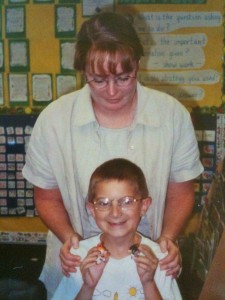
Jason with his fabulous Second Grade Teacher, Mrs. Frausto. Notice he's holding two of the Powerpuff Girls.
Originally posted 2012-04-27 10:26:49.











